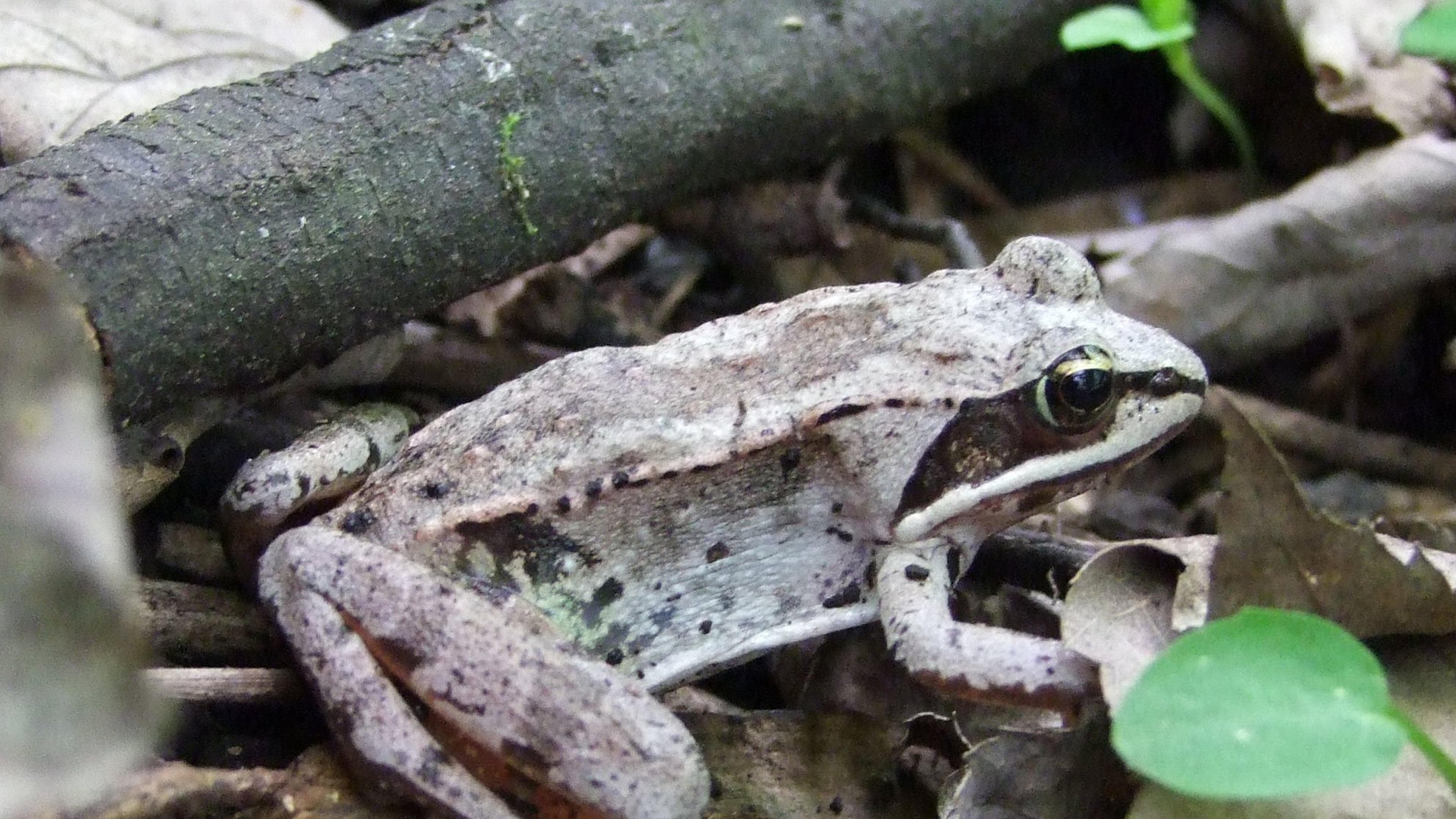WILD GEORGIA: If it sounds like a duck, it might be a frog

Charles Seabrook’s “Wild Georgia” column appears weekly in The Atlanta Journal-Constitution.
If you’re near a temporary, rain-filled pond or large puddle in North Georgia’s woods this time of year, you may hear what sounds like quacking ducks.
Actually, it’s probably frogs — wood frogs, to be exact. The 3-inch-long, brownish frogs, each marked by a distinctive black mask extending backward from the eye, are some of Georgia’s most amazing creatures. They appear seemingly from out of nowhere for a few days in January and February and congregate in the ponds at night to engage in their frenzied mating known as “explosive breeding.” Then they quickly disappear back into the woods, not to be seen again until the next breeding season.
In the ponds (which contain no predatory fish), males often outnumber females by at least two to one. The males arrive first and immediately begin jostling with each while calling at the same time.
Mark Mandica, director of the Atlanta-based Amphibian Foundation, describes the wood frogs’ calls as “a massive nocturnal duck party (ducks don’t quack at night). It can be both hilarious and deafening at the same time.”
Then the female wood frogs show up. “During the breeding season, the large females turn a beautiful salmon color, making it easy to tell them apart from the smaller, browner male,” Mandica said. As the females swim toward the center of the pond, several males will grab them, clinging to an individual female until one male wins out.
Sometimes the males are so frenzied that they latch onto other males.
Females lay large masses of up to 2,500 eggs that are attached to vegetation in the water. Eggs usually hatch within two weeks, and tadpoles transform into frogs in two months. Egg masses already are appearing in several ponds in North Georgia’s mountains, where wood frogs prefer to live in the state.
Other winter breeding frogs that may be heard calling now in Georgia include the spring peeper and the upland chorus frog.
IN THE SKY: From David Dundee, Tellus Science Museum astronomer: Look for a thin crescent moon on Sunday just after sunset. Venus is low in the west just after dark and sets about two hours later; it will appear near the moon on Monday. Mars is low in the east about two hours before dawn. Jupiter is in the east an hour before sunrise.

